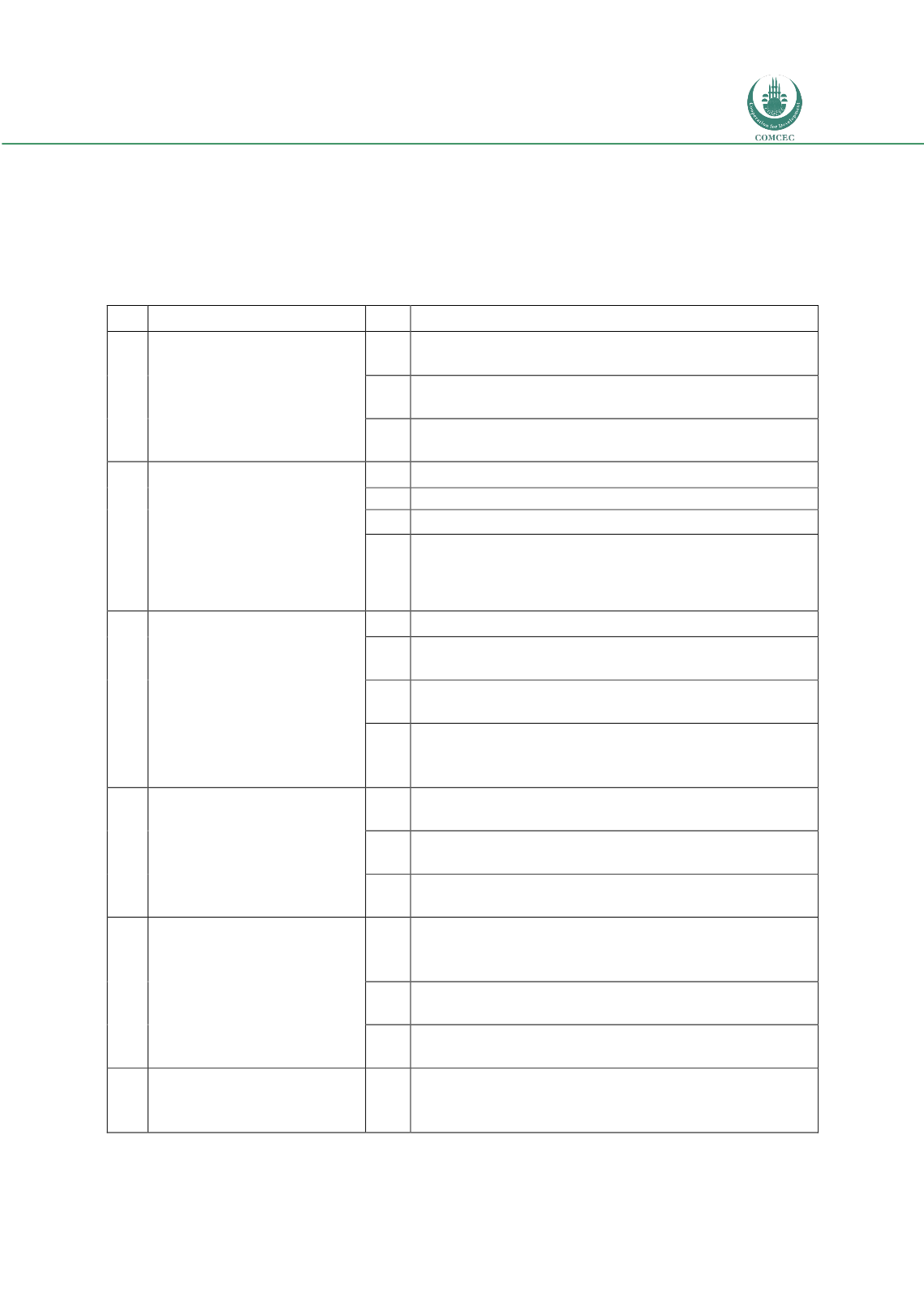

Risk Management in
Islamic Financial Instruments
137
6.9.1. Key Performance Indicators for Measuring Progress
The Midterm Review of Ten-Year Framework also provided a number of KPIs against which
the progress of Islamic financial industry development can be measured. Table 6.3 shows
those KPIs.
Table 6.3: Key Performance Indicators for Measuring Progress
No. Recommendation
Key Performance Indicators
1
Facilitate and encourage
the operation of free, fair
and transparent markets
in the Islamic financial
services sector
1.1
Progress made by member countries on World Bank
governance metrics
1.2
Percentage of member countries operating free market
financial systems
1.3
Level of transparency of Islamic banks compared with
conventional counterparts
2
Enhance the capitalization to
ensure that they are
Adequately capitalized, well-
performing and
resilient, and on par with
international standards and
best practices
2.1
Average capital adequacy of Islamic banks
2.2
Average ROE of Islamic banks
2.3
Average ROE of Takāful companies
2.4
Market capitalization of member country capital markets
3
Enhance access by the large
majority of the population
to financial services, and
enhance access to funding
for SMEs and entrepreneurs
3.1
Percentage of population with access to financial service
3.2
Number of Islamic microfinance institutions in member
countries
3.3
Percentage of Islamic banks offering SME and entrepreneurial
finance
3.4
Number of member countries with SME and entrepreneurial
finance programs (public sector or NGOs) that are Sharī`ah
compliant
4
Enhance Sharī`ah compliance,
effectiveness of corporate
governance and transparency
4.1
Number of member countries with national Sharī`ah
standards or national Sharī`ah boards
4.2
Number of countries adopting international Sharī`ah
standards in their supervision framework
4.3
Corporate governance standards and disclosure standards of
Islamic financial institutions
5
Develop the required pool
of competent, skilled and
high-calibre human capital
and ensure utilization of
state-of-the-art technology
5.1
Percentage of countries with Islamic finance education
available (within general educational institutions or
specialized Islamic finance institutes)
5.2
Access to specialized Islamic finance training through
internet-based platforms
5.3
Number
of
professionals
receiving
industry-specific
qualifications
6
Enhance the development
of standardized products
through research and
6.1
Number and usage of standardized products with
published structures and contracts

















